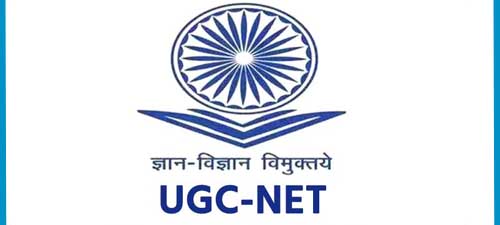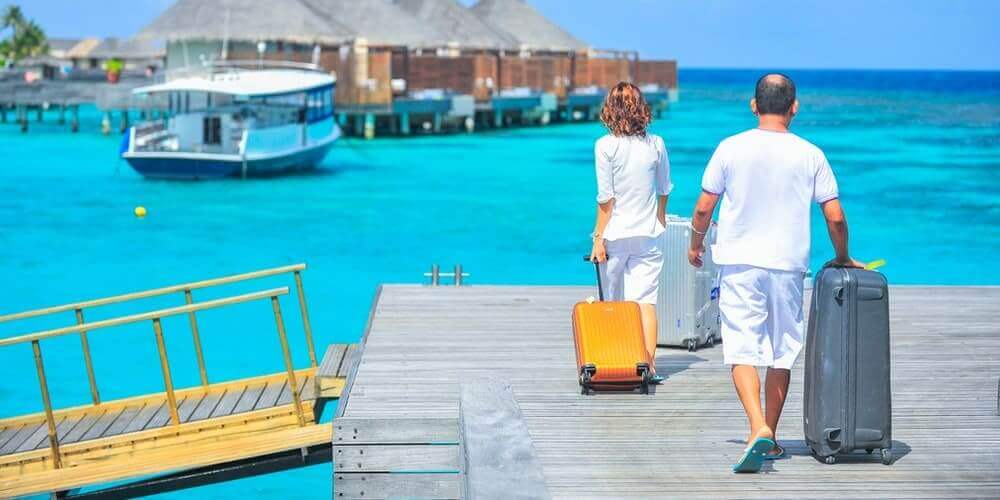Local community Involvement in Tourism Development Stakeholders play an important role in tourism sector. Local community is a stakeholder whose role is very important in tourism. As, he participates in the tourism activity and anything which impact tourism has a direct consequence on him.
Also, in tourism his role is vital as his attitude & behaviour directly impacts the tourism activity. So, whenever the tourism planner and policy maker are thinking of developing a destination, they always give an important role to him. Because the success & failure of tourism activity directly depends on him.
Moreover, if local community is involved, he always plans things which improve his vicinity as well his socioeconomic status without harming his own ecology. He always tries to minimize the negative impacts and enhance the positive impacts. In tourism apart from the main tourism product the local services and products play a key role in giving valuable experience to the tourists.
Also read Emergence of Sustainable Tourism
The community based tourism as nowadays considered an integral part of any form of tourism. It not only help the local community to enhance their livelihood opportunities but also gives an unique experience to the tourist as well. It helps in doing sustainable type of development which not only gives value to the guest and host, but also take care of the tourist destination which acts as a main motivation to the tourist.
Local communities are a very important element of the tourism products, as a host at a destination they have a very crucial role in the development and delivery of the tourism products, this chapter discusses about important aspects of tourism development that would be essential for tourism practitioners in all sectors, public, private and voluntary, as potential leaders, contributors or funders of tourism projects.
All people of the community are touched by the positive and negative impacts of tourism as a core part of both the local culture and the offer of hospitality. Community tourism products and services are generally it consists of small enterprises and which survive alone, but which together create a destination.
These small businesses are the core of the community tourism experience. They give several communities the chance to get involved in the tourism industry and allow the benefits of tourism to be distributed throughout the communities. This provides a sole chance to grow and improve the tourism products in a particular area. It is a form of tourism run by and for the local communities.
Also read Sustainable Tourism
It may be another in character or may provide for larger numbers and have more in common with aspects of mass tourism it can even be related with organized packages and even coach travel. Whereas businesses benefits from tourism, residents frequently associate it with the negative impacts: congestion, litter, overcrowding, high prices, depletion of natural resources, commodification of locals, overuse of resources etc.
Even everywhere the industry is recognized as a essential component of the local economy the tourists may still be disliked. This fragile balance highlights the necessity for communities to play crucial/important or active role in tourism development in local area. (Richards, 2007). Local community Involvement in Tourism Development
Sustainable tourism development
The idea of sustainable development is measured as one of the most basic concepts, which aims at reducing the tension, difference and environmental degradation that can result from the contact and overlap amongst tourism industry and tourists on one hand and between the environment and local communities on the other hand.
The world Tourism Organization (WTO) defined sustainable tourism development in 2004 as tourism that fulfils the needs of current tourists and host communities while protecting and enhancing opportunities for the future.
Also read Tourism in the 21st Century
It is an insight which leads to management of all resources in such a way that it could fulfil the economic, social and aesthetic needs of the community, with the protection of cultural integration and life support systems of the local population or the community. Local community Involvement in Tourism Development
Sustainable tourism is that practice where there is an establishment of a suitable balance between the economic and socio-cultural aspects of tourism development, sustainable tourism development plays an important and crucial role in conservation/preservation of the biodiversity.
It focuses on minimizing the negative impacts of tourism development on both the environment and the local culture keeping in mind that it would be preserved for the coming future generation, with the motive of earning income, generating employment and the conservation and protection of the local culture/ecosystems of a particular area.
By applying the concept of sustainable tourism development, the positive contribution of tourism can be applied for the biodiversity conservation and further it can be used as a tool for poverty elevation and achieve the common goals for sustainable tourism development. It also provides opportunities for crucial economic incentives for the protection of the habitat.
Also read Adventure Tourism
Revenue earned or generated from tourism is spent or channelled back into the environment protection or capacity building programs for the local communities with the aim of managing the protected areas. moreover, tourism can be used as a major key vehicle in raising awareness and fostering positive behavior change for biodiversity protection/conservation amongst the millions of tourists travelling all over the globe every year. (Mowforth & Munt, 2015)
Benefits to locals through Involvement in tourism development
Sustainable income: Tourism plays a crucial role in the providing employment directly to the local residents of a particular place or can find the local activities through distribution of revenue, this revenue can be generated from access fees, concessions in the MPA.
Also the tourist spending in tourism activities such as food, buying handicrafts, boarding & lodging. however, the community not should be totally dependent on tourism for there income, overdependence on tourism can corrode or effect the cultural values of the local/host communities and can make the community vulnerable to fall in the demand.
Local people should not be totally dependent on unrealistic levels of employment on tourism. Sustainable tourism development will not create an bonanza for the entire host community, but will easily generate some jobs opportunities for a percentage of the community, most of the jobs generated from sustainable tourism would be part time and seasonal basis.
Also read Mass Tourism and Un-Sustainability
Improved local services: By participating or practicing sustainable tourism development there can be improvement in the quality of local services like education and health services, with the general increase in the funding across the local area more and more sustainable tourism activities and projects can be improved or funded and well planned, such as constructing a health centre for the locals or may be a primary school.
Cultural empowerment and cultural exchange: Sustainable tourism practices helps in empowerment of local culture and also create opportunities for culture exchange, many tourists enjoys meeting local /hosts and learning about there lifestyles, eating habits, culture and customs ,traditions etc. and exchange there with the locals, which is helpful for both the local and the tourists in a way that they exchange there different traits with each other ,community participation also adds significant value to a sustainable tourism program. language exchange also takes place.
Local community gets awareness of conservation: It is very obvious for the locals to not fully appreciate their surrounding environment and take it for granted what they have. Usually it is the person coming from a new place who takes a fresh look and starts giving importance or adding to our resources.
Although the locals are aware about the resources and also understand the difficulties and value these resources play in there lives ,many locals starts realising about there natural and cultural resources until the arrival of international tourists and how they treat/use these resources, these international are very interested and highly enthusiastic about the local areas and communities.
As a result the locals communities may start realising the sense of importance and pride, which tends to change or increase the awareness and local conservation efforts , many of the locals gets motivated by others to protect their areas, both natural and cultural resources. (Wood, 2002)
Also read Special Interest Tourism (SIT)
Threats to locals through involvement in tourism development
Environmental impacts: Due to excessive number of tourist at a particular area or destination, the carrying capacity and over utilisation of resources is done which creates negative impacts on the environment an resources are nor used in a proper way. Local community Involvement in Tourism Development
Economic instability: Due to economic instability at a particular area/destination there are chances that may make the communities vulnerable to fluctuations/changes in the tourism demand at a destination. the price of the daily use goods or services like groceries, gasoline, restaurants, real estate etc. may rise for the locals as well due to high movement of tourists at that destination.
Crowding: Due to sudden increase in the movement of tourists to a destination/area overcrowding may arise in a town, beaches, attractions, shopping mallsetc.which may disrupt or imbalance the peacefulness of that place or effect the natural environment of the place as well as nearby places, these negative impacts may affect the local residents as well as the tourists.
Excessive development: Due to increase in the development at a particular place it may be a city, town or a small area due to tourism growth, this excessive development may disrupt the local communities in and around that place. Development is taking place in phases i.e. planned development (resorts, piers, hotels, restaurants, shopping malls, casinos etc.) and the unplanned development by the local people on the backward or poor areas due to entry of large number of unskilled people seeking jobs in the current tourism industry problems like sewage system , water and public infrastructure may arise due to unplanned development which often takes local authorities by surprise.
Areas with dense constructions of resorts and hotels become surrounded by shantytowns that arises to poor living quality for the residents and also stress or affects the local environment of a place for example cities like Mexico, Delhi, Mumbai, Rio de Janeiro etc.
Outside control: There are maximum chances of outsiders taking control at tourism areas/destination,this is a real concern for the locals or the host community, stakeholders from outside have financial resources and years of experience, which gives them a chance to squeeze the business of locals or through/push them out of the competition or supporting role in the process of tourism, communities may dislike if they feel they have little control over the market.
Also read Adventure Tourism
Economic leakage: Revenue earned from the the tourism activities may outflow of the tourism area/destination if the tourists buy international goods and utilise internationally owned businesses instead of goods and services produced by the local/host community, leakage to some extent is normal, but it must be controlled to a limit, luckilytourist are ready to support the local goods and services if they are given a right chance and opportunity with authentic experience.
Cultural change:Due to inflow of tourists from all over the world at a particular area/destination there are chances of culture exchange which can be both be positive and negative as well.it takes place without the chance for the communities to decide whether they really want the change.some tourists don’t want the indigenous population to change but some may see a new market to influence, even there are cases when the indigenous population have mixed desires, such as they want modernization in there culture, wanting to sustain with the traditional culture and customs, or simply want to live a decent life. (Markandya, Taylor, & Pedroso, 2003)

Local community Involvement in Tourism Development


